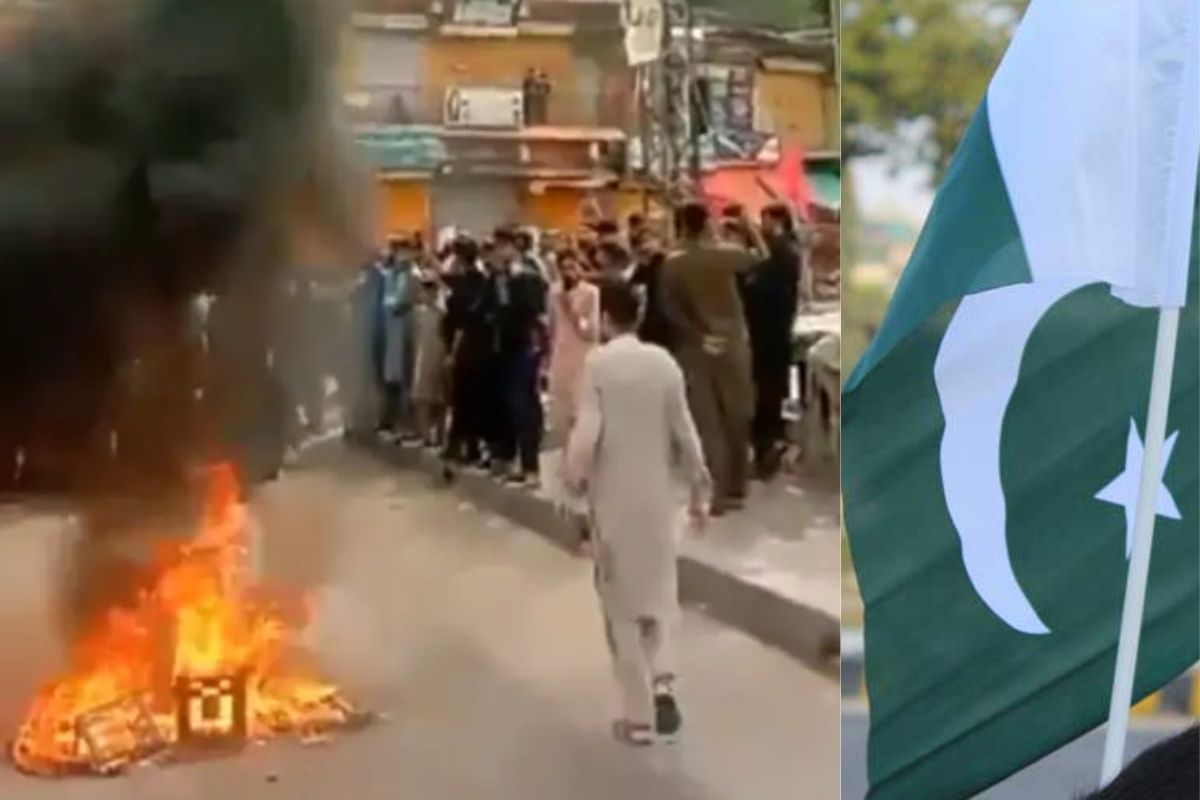


The recent surge in violence in Pakistan-occupied Kashmir (PoK) has raised grave concerns about the well-being of its residents and the role of the international community in addressing human rights violations.
Despite the serious situation, the lack of response from the world’s leaders is both confusing and very worrying.
Table of Contents
TogglePoK is currently experiencing some of the most violent protests in its history. The people’s frustration over the lack of food, electricity, and economic opportunities has resulted in open conflict.
Reports suggest that Pakistani rangers have responded to these protests with excessive force, leading to civilian casualties. The area is also experiencing severe infrastructural deficits, including inadequate healthcare, education, and basic amenities.
Violence: The protests have been marked by clashes between civilians and Pakistani security forces, leading to several civilian deaths.
Massive Unrest Grips Pakistan-Occupied Kashmir As Protests Escalate For ‘Rights And Freedom’#Pakistan #PoK #ABPLive https://t.co/owPFB1c62x
— ABP LIVE (@abplive) May 12, 2024
Economic Discontent: A major catalyst for the protests has been economic hardship. PoK generates a substantial portion of Pakistan’s electricity, yet the region suffers from power shortages as most of the electricity is diverted to other provinces.
Additionally, the inflation rate in Pakistan was reported at 25% in 2023, which was the highest among 48 countries in Asia. The cost of basic necessities like wheat flour has skyrocketed, further aggravating the situation.
Demands for Facilities: The people of PoK have been demanding facilities and economic opportunities comparable to those in Kashmir (India). However, the Pakistani government has failed to meet these demands, leading to increased frustration and calls for a merger with India
Here’s a detailed analysis of Pakistan’s role in the recent violence in PoK, based on the latest information available:
Economic Policies: The region generates a substantial portion of Pakistan’s electricity yet faces power shortages due to supply to other provinces. Additionally, the Pakistani government approved a 23 billion rupee ($82m) subsidy program, reducing the price of wheat and flour after the protests.
Political Repression: Political repression has been a hallmark of Pakistan’s control over PoK. Islamabad maintains tight control over the region’s governance through a puppet administration. Elections are sometimes unfair, people who disagree are often hurt, and those who are politically active can be arrested or go missing.
Human Rights Violations: In PoK, human rights are often violated severely. People are arrested without reason, killed without a trial, tortured, and made to disappear. The security forces act without being held accountable, attacking those who disagree and creating an environment of fear and control.
Freedom of Expression: In PoK, speaking freely is greatly restricted. Reporters, campaigners, and thinkers are often bullied, scared, and attacked for speaking against the Pakistani government. Control over the media stops different opinions from being shared.
Response to Protests: The recent protests in PoK have been met with violence by Pakistani security forces. Clashes between police and protesters in Muzaffarabad resulted in the deaths of three young men and injuries to several others. The Pakistani Rangers have been accused of using excessive force, including firing and teargas shelling.
Blame on External Factors: Officials in Pakistan suggest that “enemy propaganda” is making the situation worse, likely referring to India, a country Pakistan has had three wars with over Kashmir. However, Islamabad has not officially blamed India for the crisis in PoK.
Read More – India Signs 10-Year Deal with Iran for Chabahar Port Management
The international community’s response to the crisis has been notably muted. There has been little to no concerted effort to address or even acknowledge the ongoing human rights abuses and the dire humanitarian situation in PoK.
Silence: Despite the severity of the situation, the international community has largely remained silent. There has been no significant international pressure on Pakistan to address the human rights abuses or the humanitarian crisis in PoK.
State of Denial: The lack of response from global actors suggests a state of denial about the gravity of the situation in PoK. This silence is seen as a failure to uphold human rights principles.
This lack of action is particularly concerning given the scale of the violence and the potential for it to escalate further.
The silence of the international community is not just disappointing; it is a failure to uphold the principles of human rights and dignity.
It is imperative that global actors, including the United Nations and human rights organizations, take a stand and demand accountability from the Pakistani government. Support should be given to the residents of PoK who are affected by political conflicts.
The PoK issue highlights the difficult nature of political disputes and the impact they have on people’s lives. The international community must break its silence and take meaningful steps to ensure the safety and rights of the people of PoK. Only then can we hope to see a resolution to the violence and a path towards peace and stability in the region.

